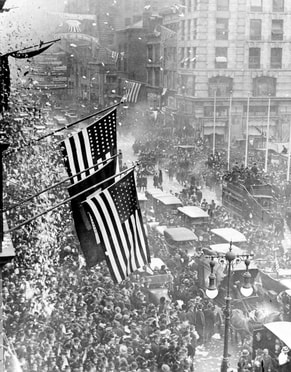 - from the desk of John J. Zimkus | WCHS Historian/Educational Director (The following is the text of a speech given on November 11, 2018, at Runyan Field in Lebanon, Ohio marking the centennial of the Armistice ending World War I.) One hundred years ago today, on November 11, 1918, an armistice went into effect. It was the formal agreement to stop the fighting in what was called “The Great War,” “The war to end all wars” better known today as World War I. They didn’t know at that time that a little over 20 years later we had to start numbering such devastating conflicts. The armistice was between the Allies - Britain, France, Russia, Italy and the United States, and their opponent, Germany. Separate armistices had already existed between the Allies and Germany’s partners in what was called the Central Powers - Bulgaria, the Ottoman Empire and the Austro-Hungarian Empire. The armistice was signed in a railway car in an area in Northern France called Compiègne, around 5:00 a.m. It was agreed that at 11 a.m. that same day, November 11, 1918,—“The eleventh hour ,of the eleventh day. of the eleventh month”— the ceasefire would go into effect. During the 6 hours between the signing of the armistice and its enforcement, although some opposing armies on the Western Front began to withdraw from their positions, along many other areas the fighting continued. Consequently, on the last day of World War I, there were nearly 11,000 casualties, of whom 2,738 were killed. An American, 23-year-old Henry Gunther from Maryland is generally recognized as the last soldier to die in action in World War I. He was killed at 10:59 a.m. Paris time, 60 seconds before the armistice went into effect. The actual terms of the armistice, largely written by the Allied Supreme Commander, MarshalFerdinand Foch of the French Army, included the cessation of hostilities, the surrender of aircraft, warships, and military materiel, the release of Allied prisoners of war and interned civilians, and eventual reparations. News of the armistice reached Lebanon, Ohio around 3 in the morning, that Monday, November 11, 1918, about 6 hours after the actual announcement was made in France. Many of the people who were awake at that time in Lebanon remembered the false United Press dispatch announcing “peace” the previous Thursday and were slow to accept this news as being genuine. Around 6 a.m. the armistice announcement was verified and, as The Western Star reported, “The fun started.” Church bells, fire bells, train and factory whistles united in what was called a “Glorious hallelujah.” The noise attracted the attention of every citizen in Lebanon. It was said few people took the time to eat their breakfast that morning but instead rushed into the streets to join the crowds already there. The newspaper reported,“ Then until noon - pandemonium reigned.” The Lebanon schools, Lebanon High at that time being located were Pleasant Street Park is today, were closed. They were scheduled to open that very day after being shutdown for several weeks due to the deadly Spanish flu epidemic that had spread throughout the country. Now however, teachers and students joined the celebration in the streets. Stores closed and business in Lebanon in general was suspended. Such signs as “To Hell With the Kaiser” and “Closed to Celebrate” were posted in many the town’s store windows. Parades sprung up spontaneously all over Lebanon. People shouted themselves hoarse in and effort to be heard and join in the noise of the car horns, cow bells, tin horns, tin pans and other instruments of noisy celebration. The executive committee of the fraternal organization called the Men of Lebanon hastily and successfully made preparations for a parade to begin at 9:30 a.m. It started from Harmon Hall headed by several members of the Harmon Hall Band. It was said there was scarcely room for people on Broadway. Boy Scouts, Girl Scouts, school children, men, women and automobiles galore. The procession was said to be nearly a mile long. After the parade went over the principal streets of town, Judge Frances M. Hamilton was asked to speak. He paid tribute to the brave boys from Lebanon who had helped to achieve this great victory. He then told the crowd that Lebanon will never again hold such a demonstration as on this day, save one - “When our boys come home.” Several songs were sung by the crowd led by Miss Laura B. Cunningham and elementary teacher in the Lebanon schools. Then every man and woman in the vast group bowed their head in a moment of silent prayer. After that Mayor Murphy proclaimed that day, November 11, 1918, a holiday. Preparations were then immediately launched for what was described as a “Mammoth parade" for that night. Promptly at 7 p.m. the great procession began with the Harmon Hall Band providing the music. At “each corner new faces joined in.” It was reported, “This was one time when everyone was an [equal]. The humblest and highest marched side by side.” Following this parade speeches were made. One was by Judge J. A. Runyan, the namesake of the Runyon Field in which we are gathered this morning. He was from the Local Draft Board. Another was by Attorney Frank C. Anderson representing the Red Cross. Judge F. M. Hamilton read a poem written by Cpl. William McKinney of Lebanon’s own Company E of the First Regiment of the Ohio National Guard who trained on this spot and went into battle at part of the 147th Infantry, 37th Division, of the American Expeditionary Forces. The last stanza of Cpl. McKinney’s poem reads: “To mothers of men that have fallen On the field of battle in France, Let not your hearts be worried For they were given a chance To give their hearts to their maker. Your prayers were not made in vain. When the trumpet of judgement has sounded You and he shall meet again.” Three days later, on November 14, 1918, an editorial in The Western Star entitled simply “PEACE” said in part:
“Not since the morning stars sang the anthem, ‘Glory to God in the highest, and on earth Peace, good will to men,’ has the world heard so joyful an announcement as that which the wires carried on Monday morning, announcing the signing of the armistice on the part of the German government. “No wonder Lebanon - Warren County - Ohio - the United States - the World acted as though it were insane with joy. No wonder tears and laughter intermingled. No wonder the old forgot their age and became youths again. No wonder the young assumed the age of discretion and discussed ‘What [Marshal] Foch had done.’ Nothing was to be wondered at . . . on Monday. “Peace - Sweet Peace - Peace with Victory - Peace with Honor, had come. 100 days ago every cloud was black with the possibilities of an autocratic German victory. 100 days ago there was hardly a bright spot in the sky as big as a man’s hand. But those who had faith saw a bright spot and said, ‘All will be well.’ “As a French woman said, ‘God happened,’ and the bright spot grew in size. God’s emissaries, led by that most wonderful man, General Foch, who left his staff on many an occasion to enter a humble chapel and pray for the success of his army, have overturned the hosts of hell and won a victorious peace.”
0 Comments
Your comment will be posted after it is approved.
Leave a Reply. |
AuthorVarious staff and volunteer writers. Categories
All
Archives
June 2024
|
Email: [email protected]
Wchs Office/Harmon MuseumTues - Sat: 10am - 4pm
Year Round |
1795 BEEDLE cABINPhone for hours
Year Round |
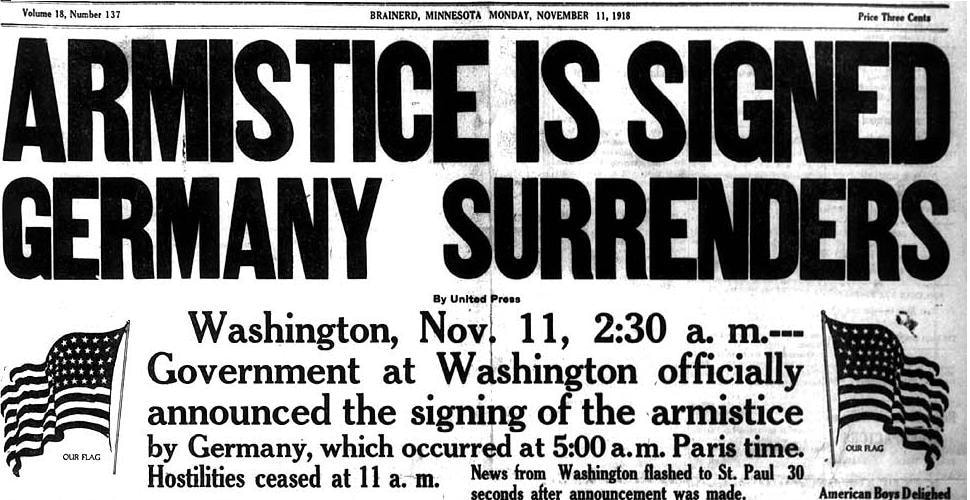
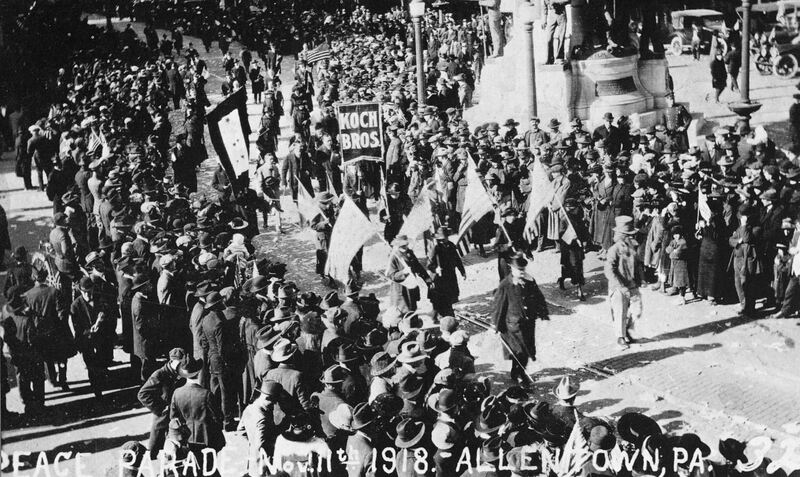
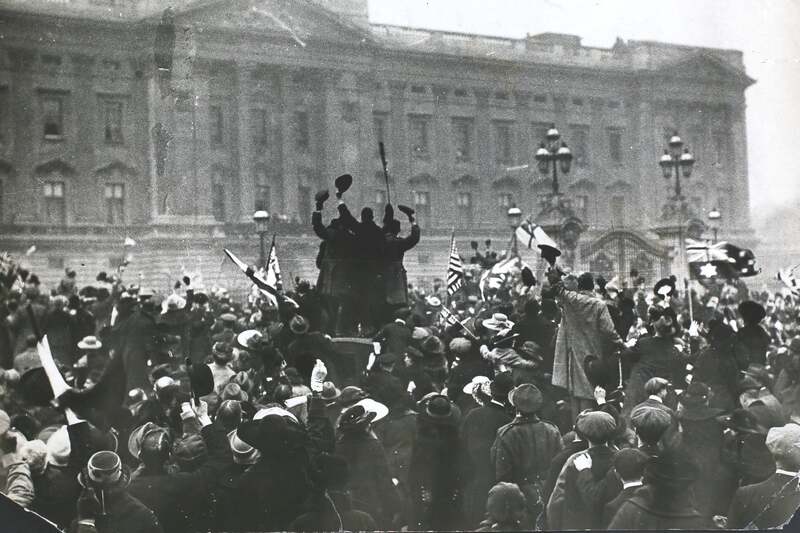
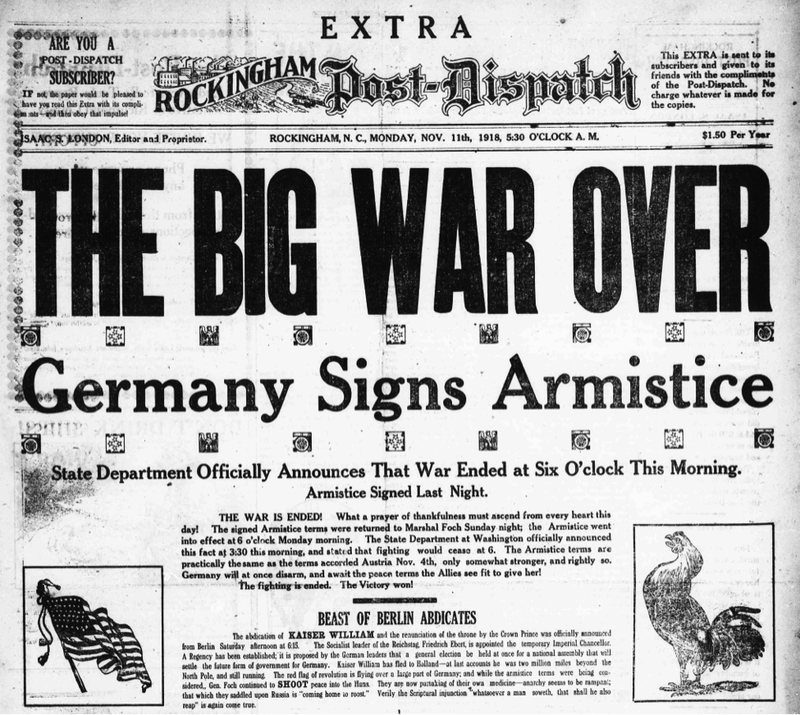
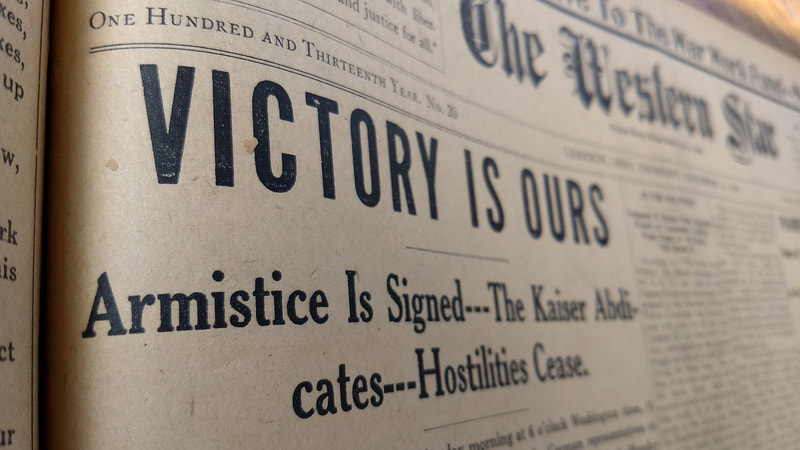
 RSS Feed
RSS Feed





